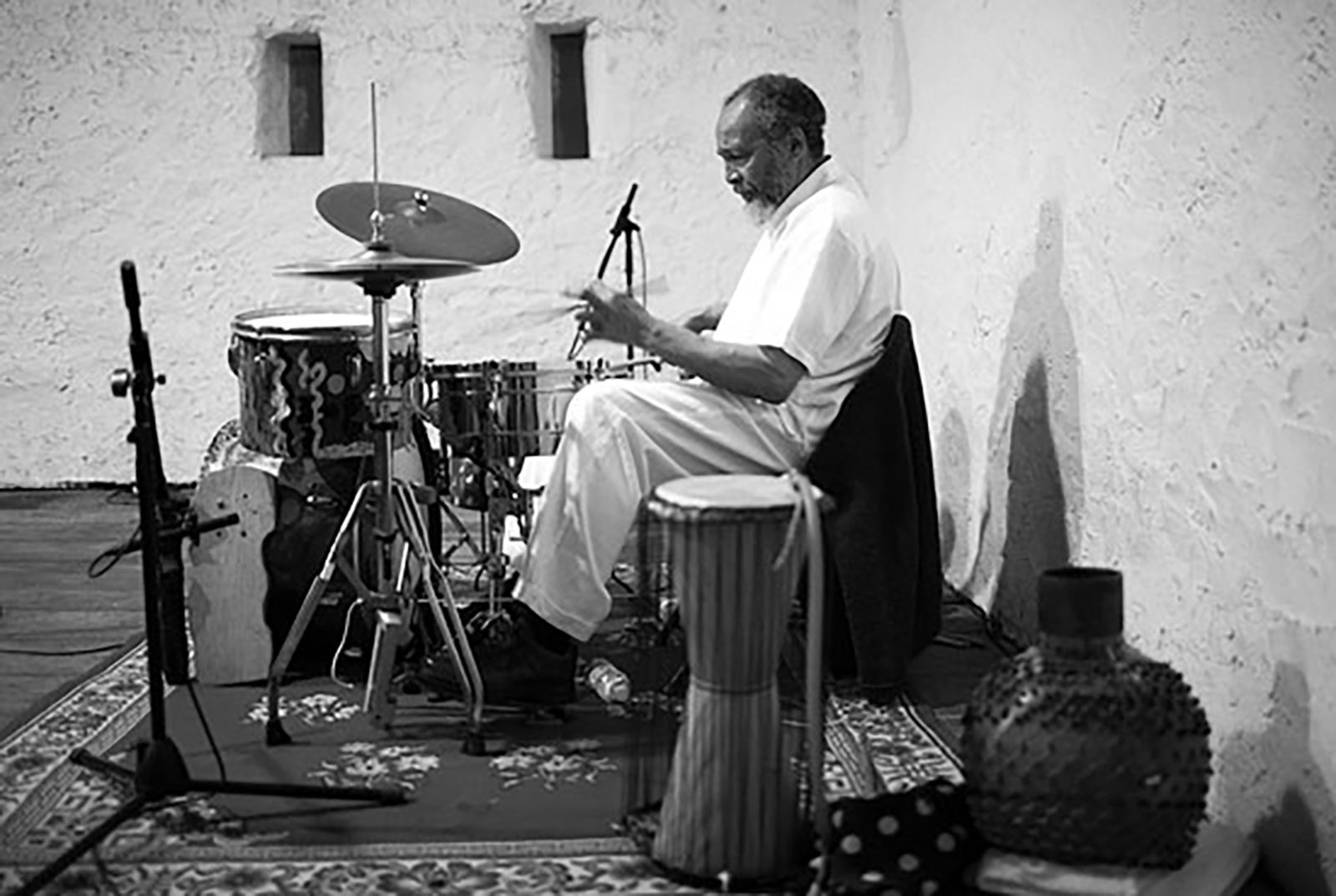Milford Graves doesn’t play the drums to keep time for the band. Emerging in the 1960s with free jazz pioneers including Albert Ayler, Sonny Sharrock, and Giuseppi Logan, he opened up percussion to a no-holds-barred celebration of its full vibratory potential. This was not a drummer-in-the-back situation, but one where the drums could sing like nothing else. Graves is a master of African polyrhythms (he can play multiple contrasting beats at once) and his early studies on the Indian tabla and Latin-jazz timbalas give his playing a truly international sound. As a bandmate, he moves freely among musicians working in diverse styles.
A couple of things are important to Graves when he plays. One is working the skins of the drums, drawing out the micro-vibrations, or the minute shifts in tone that come in between the thump of a basic beat. The second is that Graves loves improvisation; his best playing hinges on making contact with the room. Before a concert, he takes a minute to get in tune with the murmuring voices of his audience and plays off that.
Graves is not only a storied percussionist; he also works as an acupuncturist. His latest project brings the two passions together, establishing an energetic connection between music and the natural rhythms of the body. Once when treating a friend who had a heart arrhythmia, Graves made a recording of his heartbeat and played back a beat sympathetic in tone but regularly paced. When the two beats synced up, he realized he was on to something. Since then, he’s developed what he calls “biological music, a synthesis of the physical and mental, a mind-body deal.” Graves sees healing potential in exposing the body to frequencies adjusted to its needs, and scientists seem to agree. In 2016, his name was published alongside a group of biologists in Bologna who are measuring how his vibrational signatures affect the gene and protein expression of stem cells.
Graves’ first concert at the Institute will involve biological music, incorporating live feedback and heart monitors. His course continues with a public conversation with the music critic John Corbett, whose 2016 book Microgroove discusses Graves’s work at length. Graves is also building a sculpture –– one of only a few he has realized –– that riffs on the body’s energy pathways and the heart’s vibratory signature. Made with equipment lying around his studio, including parts of an acupuncture dummy and a heart monitoring device, the work figures the body as a complex system intimately connected to its environment.
